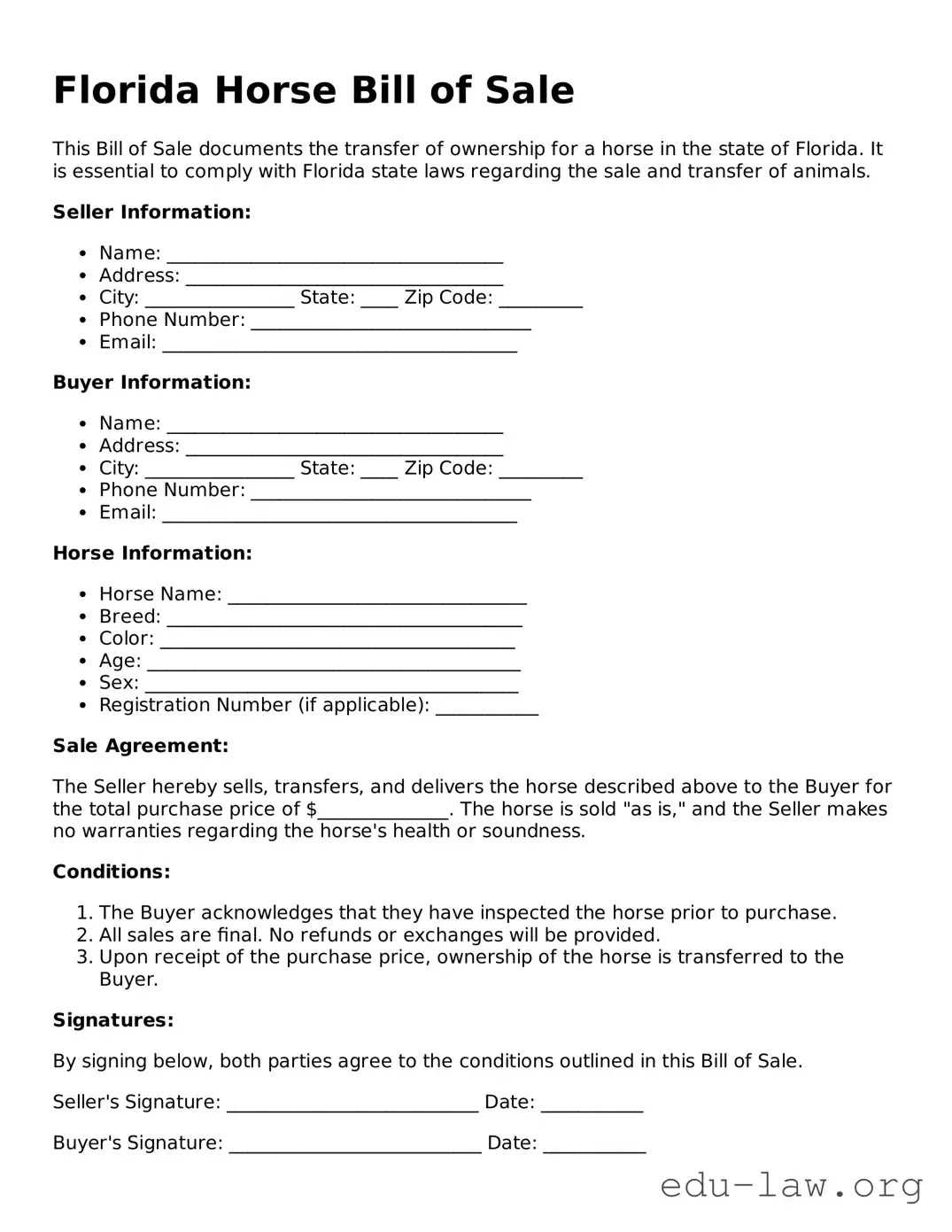What is the purpose of the Florida Horse Bill of Sale form?
The Florida Horse Bill of Sale form serves as a legal document that outlines the transfer of ownership of a horse from one party to another. This form provides essential details including the seller's and buyer's information, a description of the horse, and the sale price. By documenting the transaction, both parties can protect their rights and clarify ownership, helping to avoid future disputes.
What information is required on the Florida Horse Bill of Sale?
To ensure clarity and legal standing, the Florida Horse Bill of Sale form should include specific information. This includes the names and addresses of both the seller and buyer, a detailed description of the horse (such as breed, age, color, and markings), the sale price, and the date of the transaction. It’s also beneficial to include any warranties or conditions that may apply to the sale.
Is it necessary to have the Bill of Sale notarized?
While notarization is not a strict requirement for a Bill of Sale in Florida, it is highly recommended. Having a notary public witness the signing of the document can add an extra layer of legitimacy and ensure that both parties have agreed to the terms. This can be especially important if disputes arise later regarding the sale.
Can a Bill of Sale serve as proof of ownership?
Yes, the Bill of Sale can serve as proof of ownership for the horse. When properly completed and signed by both parties, this document evidences the transfer of ownership. Keep in mind that it may also be useful to maintain other records, such as registration documents or veterinary records, to further establish ownership and history of the horse.
What happens if there are disputes after the sale?
In the event of a dispute arising after the sale, the Bill of Sale can serve as a key piece of evidence. The document outlines the agreed terms of the sale, which can help resolve misunderstandings between the buyer and seller. It is advisable for both parties to communicate openly and seek mediation if necessary, and they may consider legal advice if the situation escalates.
Is there a specific format required for the Florida Horse Bill of Sale?
While there is no mandated format for the Florida Horse Bill of Sale, it is essential to include all relevant information clearly and completely. Several templates are available online to assist in drafting this document. Using a clear and organized layout can aid in avoiding any confusion or omissions that may lead to issues later on.
